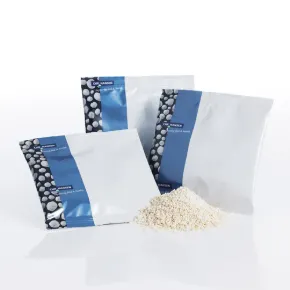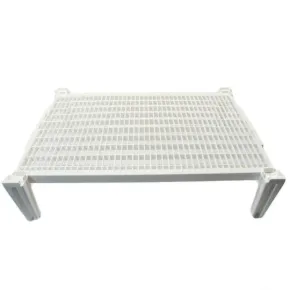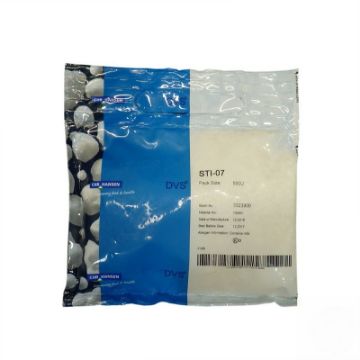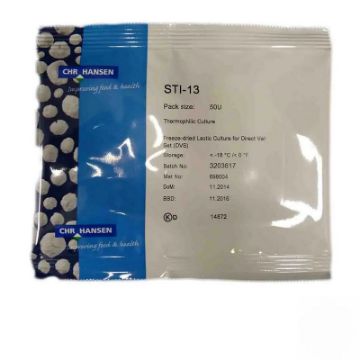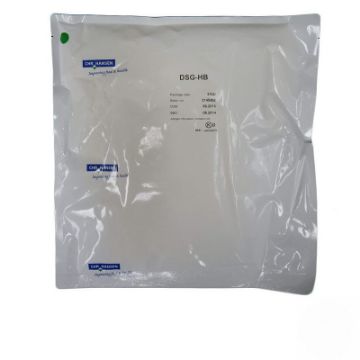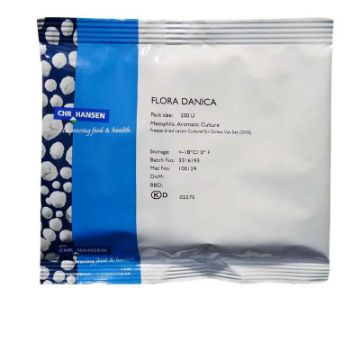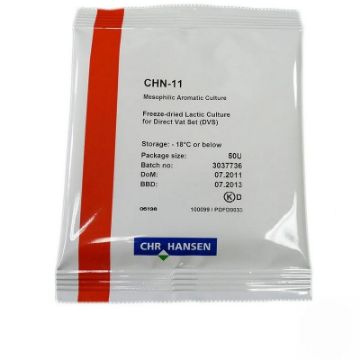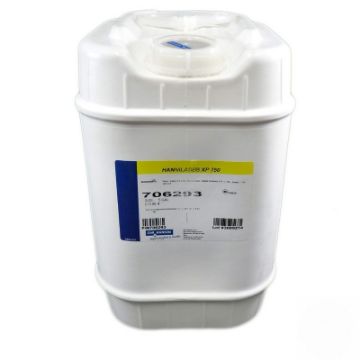Products tagged with 'Chr Hansen'
STI-07 Frozen 500 u
Defined thermophilic culture blend with improved resistance to bacteriophages.
The culture is primarily applied in Pasta Filata cheese types e.g. Mozzarella and Pizza cheese types.
The culture can beapplied alone or in combination with other lactic acid cultures, e.g. Lactobacillus delbrueckii subsp.bulgaricus andLactobacillus helveticus.
STI-13 Freeze-dried 50 u
Thermophilic lactic acid culture.
The culture is primarily applied in Pasta Filata cheese types e.
g Mozzarella and Pizza cheese types.
The culture can be applied alone or in combination with other lactic acid cultures, e.g. Lactobacillus delbrueckii subsp.bulgaricus and Lactobacillus helveticus.
DSG-HB Frozen 250 u
Mesophilic adjunct eXact® culture, type O.
The culture increases texture but not diacetyl flavor or CO2.
DSG-HB or HB-3 is used in combination with other lactic acid cultures, e.g. CHN-cultures, the XT-series or the DSG-2000-series.
The culture does not contain flavor producing bacteria and should not be used alone.
HB-3 is ideal for achieving increased viscosity in buttermilk used for dressings and baking, as well as for regular and reduced fat sour cream products and thick milk products.
FLORA-DANICA Freeze-dried 200 u
Mesophilic aromatic culture, type LD.
The culture produces flavor and CO2.
The culture is primarily used in the manufacture of Continental cheese types (Gouda, Edam, Leerdam, Samsoe) and soft cheese types (Lactic cheeses, Camembert, Blue cheese).
CHN-11 Freeze-dried 50 u
Mesophilic aromatic culture, type LD.
The culture produces flavor and CO2.
This range provides cultures with fast acidification properties at a low inoculation rate.
The culture is primarily used in the manufacturing of Continental semi-hard cheese varieties with eyes, e.g. Gouda, Edam, Leerdam and Havarti.
MICROLANT® Classic 750 coagulant (5 gal)
HANNILASE® XP 750 is a microbial coagulant, mucorpepsin, produced by submerged fermentation on a vegetable substrate with a select strain of the fungus Rhizomucor miehei kept under contained conditions and not present in the final product.
The product contains milk-clotting enzymes which are active on kappa-casein, resulting in curd formation.
It is widely used in the cheese industry as an alternative to bovine/calf rennet and Fermentation Produced Chymosin (FPC).
The high unspecific proteolitic activity of Rhizomucor miehei has significant influence on yield, flavor and texture development of cheeses compared to calf- and fermentation-produced chymosin.

